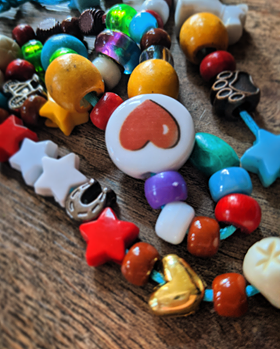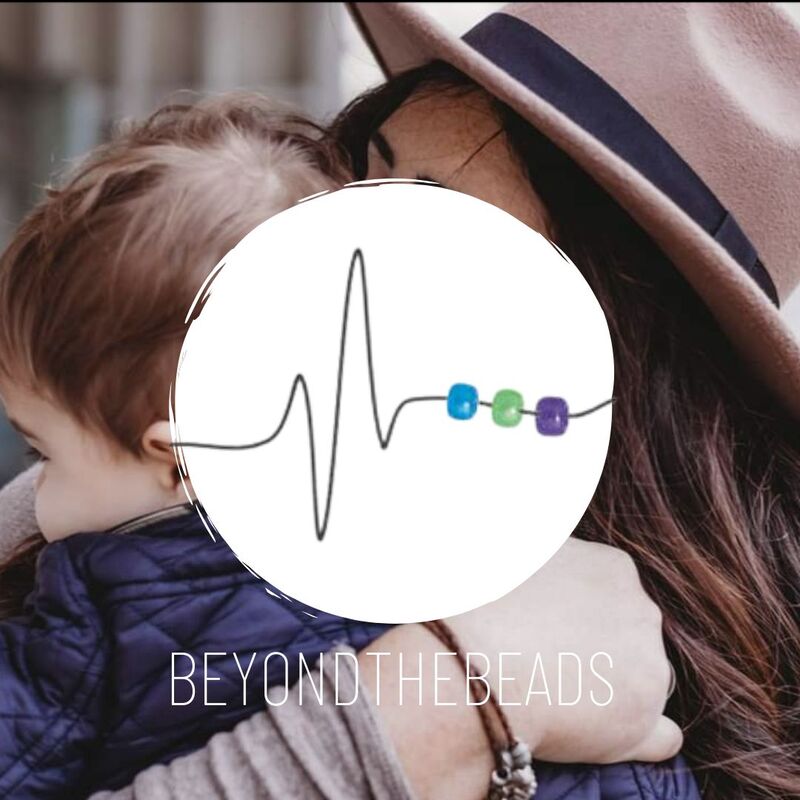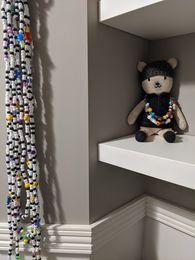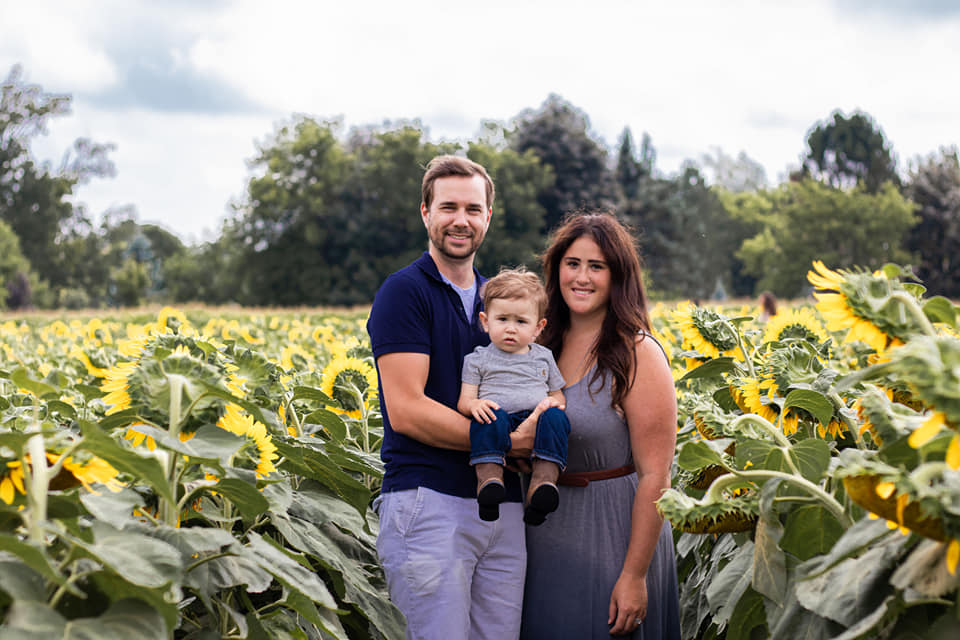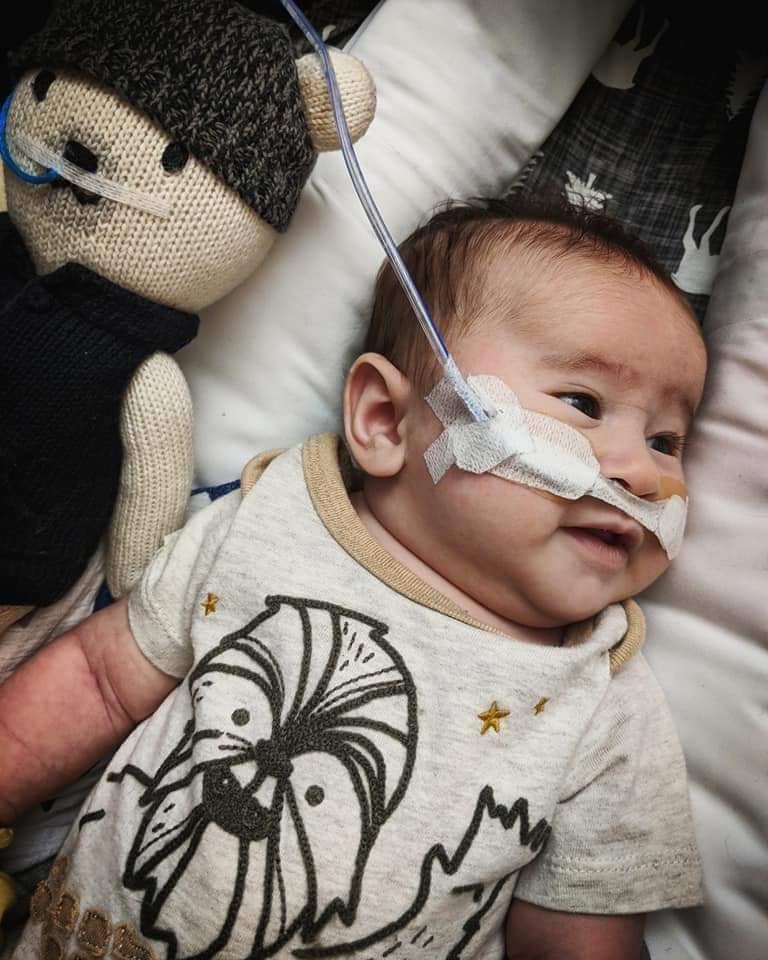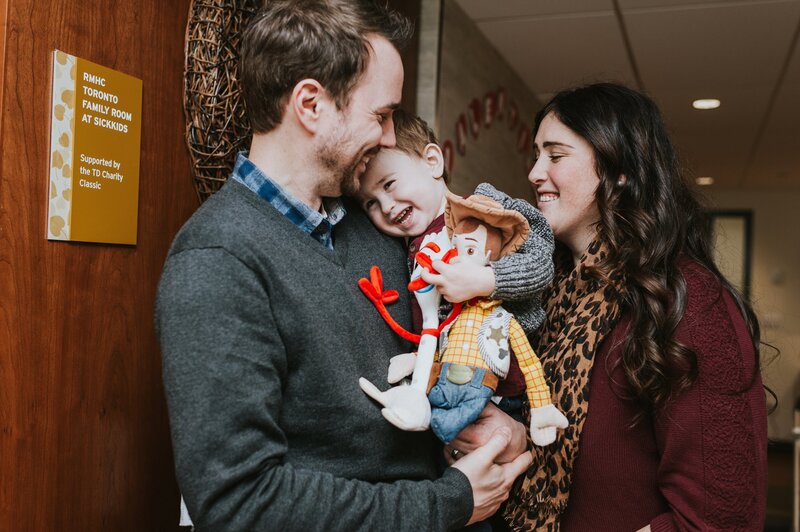Who is Beyond the Beads
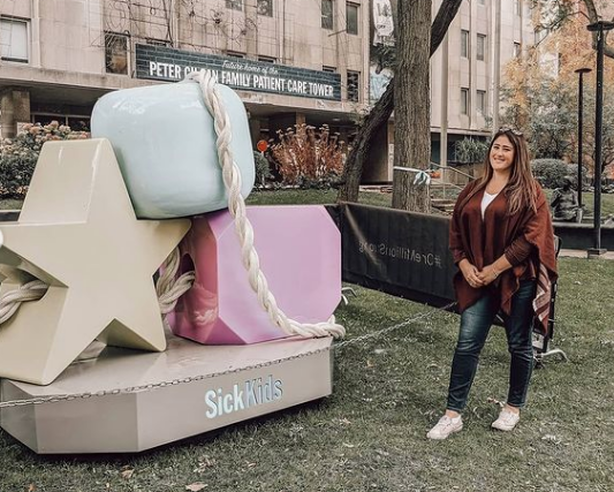
Beyond the Beads was started by Kayla & Jessica
- two SickKids Mamas, Advocates, & Educators
Beyond the Beads is now run by Kayla & includes many collaborations with Medical Mamas & families, friends & caregivers, & Medical Professionals & Specialists in a variety of respected fields & departments throughout the medical community.
The Beyond the Beads mission is to provide support & resources for parents, families,
& friends of hospitalized & medically complex babies & children.
Below you will find our stories...
KAYLA
My name is Kayla, and I am Adam’s Mama. Adam was born with a condition called Esophageal Atresia; “a congenital medical condition (birth defect) that affects the alimentary tract. It causes the esophagus to end in a blind-ended pouch rather than connecting normally to the stomach.” There are a few different types of EA and many associated difficulties and anomalies that can be present when the baby is born, these are called VACTERL associations, and can affect the Vertebral column, Anorectal, Cardiac, Tracheal, Esophageal, Renal, and Limbs. By the grace of God, Adam was not considered VACTERL and was only born with the gap between his esophagus and stomach, and later during surgery it was discovered that he had a “pinhole” trachea fistula (extremely tiny, closed off, attachment to the trachea)… aside from the writing on Adam’s medical records saying so, during and after it was removed, it’s like he didn’t even have the TEF part. As far as my husband and I are concerned, we don’t like referring to it as part of his diagnosis since it was so minuscule and unaffected.
Esophageal Atresia (EA/ TEF - tracheal esophageal fistula) is NOT genetic. We as a family have been tested genetically by three different hospitals in the Greater Toronto Area (Credit Valley, Mount Sinai, and SickKids), as well as Adam’s cord when he was born for even more invasive tests.
Like any parent who finds out that there is “something wrong” with their pregnancy, this news for us was life-changing, to say the least. I found out about my unborn son’s diagnosis during my 20 week ultrasound appointment - yeah, the one where you go to find out the gender. I’ll dive into that story a bit later. From then on, my life was turned upside down. My husband’s life, our parent’s lives, my friend’s lives… our experience has affected everyone that we know. Throughout our struggles and our highs, when the 15 months of hell we endured finally settled down into a more “normal” type of normal, we realized that we had to do something about our experiences. From that first ultrasound, to the months after we finally got home - it’s not an easy road, there are struggles that are very apparent, and other little things that are actually big things to someone going through it for the first time.
My hope here is that I can be helpful to someone else… to another EA Mama, family member, friend. To the parents and families or friends of a child born into a medical condition or medical uncertainty. It’s terrifying, it really is, but having someone to talk to who’s been through it, who you can relate to and say “omg I know exactly what you mean” or “omg, she gets it” …it’s helpful and it’s healing. I hear you, and I’m here for you.
My name is Kayla, and I am Adam’s Mama. Adam was born with a condition called Esophageal Atresia; “a congenital medical condition (birth defect) that affects the alimentary tract. It causes the esophagus to end in a blind-ended pouch rather than connecting normally to the stomach.” There are a few different types of EA and many associated difficulties and anomalies that can be present when the baby is born, these are called VACTERL associations, and can affect the Vertebral column, Anorectal, Cardiac, Tracheal, Esophageal, Renal, and Limbs. By the grace of God, Adam was not considered VACTERL and was only born with the gap between his esophagus and stomach, and later during surgery it was discovered that he had a “pinhole” trachea fistula (extremely tiny, closed off, attachment to the trachea)… aside from the writing on Adam’s medical records saying so, during and after it was removed, it’s like he didn’t even have the TEF part. As far as my husband and I are concerned, we don’t like referring to it as part of his diagnosis since it was so minuscule and unaffected.
Esophageal Atresia (EA/ TEF - tracheal esophageal fistula) is NOT genetic. We as a family have been tested genetically by three different hospitals in the Greater Toronto Area (Credit Valley, Mount Sinai, and SickKids), as well as Adam’s cord when he was born for even more invasive tests.
Like any parent who finds out that there is “something wrong” with their pregnancy, this news for us was life-changing, to say the least. I found out about my unborn son’s diagnosis during my 20 week ultrasound appointment - yeah, the one where you go to find out the gender. I’ll dive into that story a bit later. From then on, my life was turned upside down. My husband’s life, our parent’s lives, my friend’s lives… our experience has affected everyone that we know. Throughout our struggles and our highs, when the 15 months of hell we endured finally settled down into a more “normal” type of normal, we realized that we had to do something about our experiences. From that first ultrasound, to the months after we finally got home - it’s not an easy road, there are struggles that are very apparent, and other little things that are actually big things to someone going through it for the first time.
My hope here is that I can be helpful to someone else… to another EA Mama, family member, friend. To the parents and families or friends of a child born into a medical condition or medical uncertainty. It’s terrifying, it really is, but having someone to talk to who’s been through it, who you can relate to and say “omg I know exactly what you mean” or “omg, she gets it” …it’s helpful and it’s healing. I hear you, and I’m here for you.
JESSICA
Jessica is the proud mama of two beautiful boys, Theo and Christian. Both boys were born with a condition called Gastroschisis (gast-roh-SKEE-sis), which according to Kids Health (2019) is when, “a baby is born with the intestines sticking out through a hole in the belly wall near the umbilical cord. Sometimes other organs also stick out. It's a life-threatening condition that needs treatment right away”.
Gastroschisis is NOT genetic. It was extremely rare that both babies were born with this condition and unfortunately both boys suffered from complex cases. Though my experience was incredibly challenging, I feel determined to provide families with a range of support and learnings. I found that I was able to cope differently with my second son, as I had already gone through the process the first time. I realized that if families became more educated and prepared for the – sometimes very dark – realities of the NICU, it may make the experience less daunting.
What I learned from being a mother of two very sick little boys is that parents need to be thoroughly supported. This includes preparing parents, in detail, about what to expect once their child is born, how to support parents while their child is in the hospital and lastly, one of the most important factors that is overlooked when having child with medical needs, is providing resources and support for the parents once they have transitioned out of the hospital to their home.
I don’t believe that things happen for a reason, but I do believe that you get accustomed to your experiences, no matter how grim. It’s important to use your experience to make a positive impact in the lives of others. I believe it is vital for me to share my story, and to let other parents who are going through similar experiences know that they are NEVER alone! For me, this has been the greatest struggle and it is something I am still grappling with to this day.
Lastly, my story is not just for parents of babies with Gastroschisis but is for any parent of baby/child who are unwell. It’s also for family members, friends, grandparents, and medical staff, as it takes everyone to navigate and support the challenges parents can experience.
Jessica is the proud mama of two beautiful boys, Theo and Christian. Both boys were born with a condition called Gastroschisis (gast-roh-SKEE-sis), which according to Kids Health (2019) is when, “a baby is born with the intestines sticking out through a hole in the belly wall near the umbilical cord. Sometimes other organs also stick out. It's a life-threatening condition that needs treatment right away”.
Gastroschisis is NOT genetic. It was extremely rare that both babies were born with this condition and unfortunately both boys suffered from complex cases. Though my experience was incredibly challenging, I feel determined to provide families with a range of support and learnings. I found that I was able to cope differently with my second son, as I had already gone through the process the first time. I realized that if families became more educated and prepared for the – sometimes very dark – realities of the NICU, it may make the experience less daunting.
What I learned from being a mother of two very sick little boys is that parents need to be thoroughly supported. This includes preparing parents, in detail, about what to expect once their child is born, how to support parents while their child is in the hospital and lastly, one of the most important factors that is overlooked when having child with medical needs, is providing resources and support for the parents once they have transitioned out of the hospital to their home.
I don’t believe that things happen for a reason, but I do believe that you get accustomed to your experiences, no matter how grim. It’s important to use your experience to make a positive impact in the lives of others. I believe it is vital for me to share my story, and to let other parents who are going through similar experiences know that they are NEVER alone! For me, this has been the greatest struggle and it is something I am still grappling with to this day.
Lastly, my story is not just for parents of babies with Gastroschisis but is for any parent of baby/child who are unwell. It’s also for family members, friends, grandparents, and medical staff, as it takes everyone to navigate and support the challenges parents can experience.
